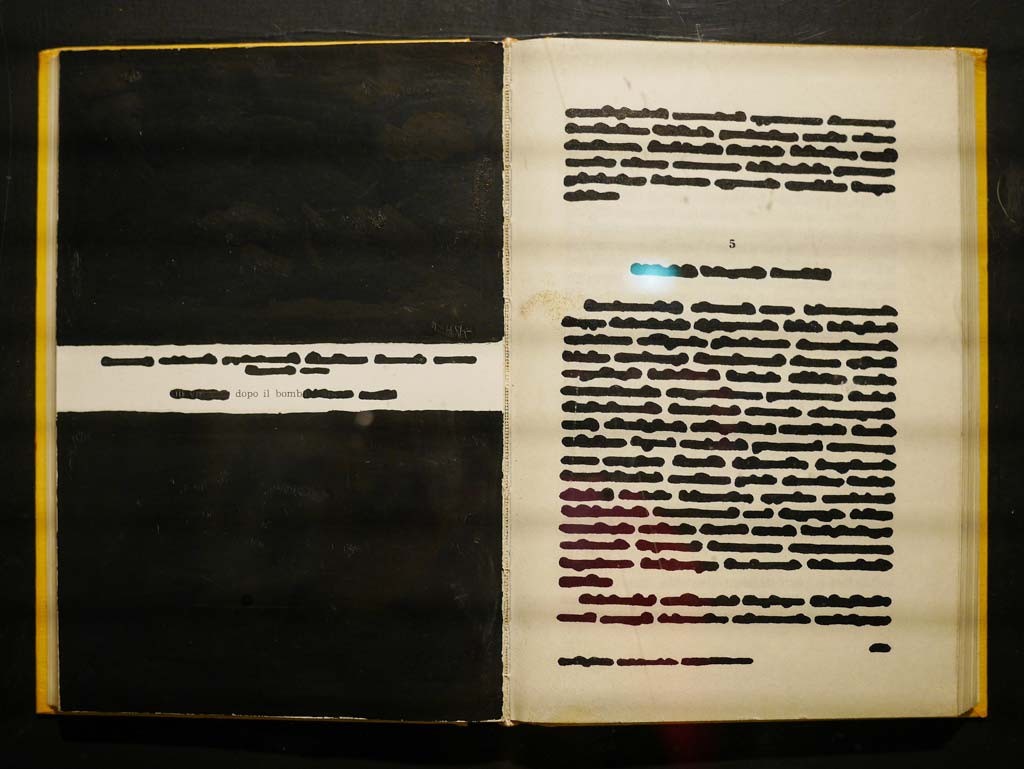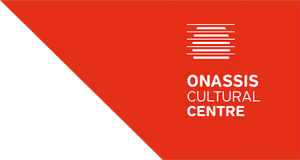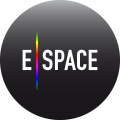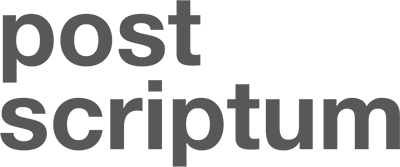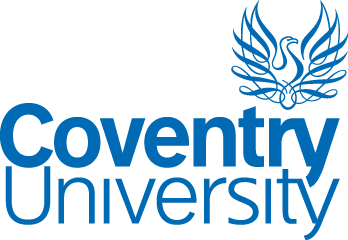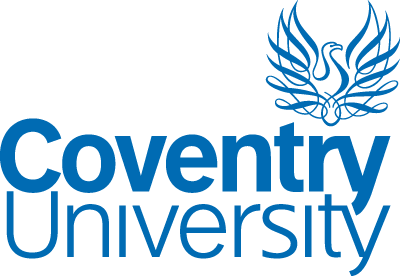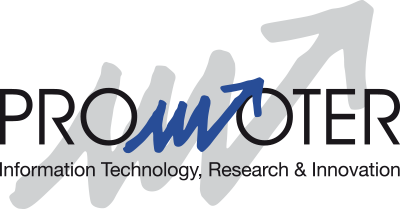22, 23 and 24 January 2016
View the full programme below
Athens
Onassis Cultural Centre, 107-109 Syngrou Avenue
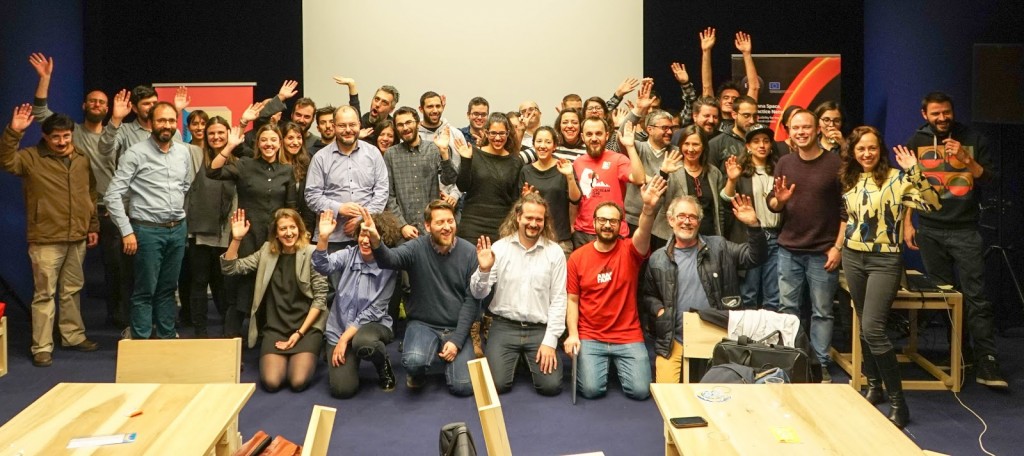
More photos are available here (courtesy of OCC)
Read more about the event on Digitalmeetsculture.net!
About
Hack the Book!
Hack the Book is a Festival for creatives, entrepreneurs, designers, developers publishers, content curators and creators who had the opportunity to rethink the book. The festival included workshops, talks and a 2-day hackathon that focused on creating a phygital (physical + digital) book from scratch using infrastructure offered by Europeana Space by remixing and building upon Europeana content. This Festival is organized by the Open Hybrid Publishing pilot.
Re-thinking the book
Books are about to be “re-invented” moving to a hybrid, phygital phase. The event is challenging users to create their own publications, finding the technical and legal limitations and learning to use data sources in order to create inspiring and innovative open-access books.
Challenges
We redefine the book by working on four different dimensions – challenges. Each team participating in Hackathon’s final stage is asked to address each and every one of these dimensions:
#BookDesign: What kind of an object a book is? How do the physical object and its digital extensions merge into a new hybridity? Which is the aesthetic experience that we want to invoke to the user/reader? How could we use smart materials in order to construct a hybrid phygital object?
#OpenHardware: how can you address the object-environment interaction through your design? How can you use Arduino or RasberryPi to its full potential so as to place the book as part of an interactive network of objects that provide the user with a coherent operation experience?
#API: how can you connect the object or the cluster of objects that you have created to open data and Europeana’s content. How can you implement the application programming interfaces (APIs) and the programming tools provided by Europeana?
#Entrepreneurship and #sustainability: which is the business model that supports your prototype? How can you secure your prototype’s sustainability? Which is the social and financial value that derives from your prototype? How does your proposal contribute to the expansion of the commons?
#Who: redefining the book process demands an interdisciplinary set of skills as well as the ability to be a team player. This is why we are asking those interested in participating to form teams with people from different backgrounds such as design, content curation, book art, creative programming and business modelling, so as to collaborate and come up with projects that transcend all known borders.
A New Playground for Content Developers
During this Europeana Space Festival, you will play and experiment with millions of items from heritage institutions all across Europe via Europeana, Europe’s online cultural hub. Through Europeana you can find open data, audio files, photos, paintings, 3D images, historical stories and archival footage.
An Educational Experience for Creative Minds
In parallel to the hackathon event, a series of inspiring talks and workshops will take place, focusing on creating value via new publishing models – both for commercial and educational purposes. Among the key topics that will be discussed are IPR and copyright issues, innovative practices as well as business modeling through open content. Speakers from all around Europe will be announced soon – but you can also use the shoutbox and attract the audience yourself at any time during the festival!
Judging
Any hybrid book can qualify as long as it incorporates a digital and a physical side and makes use of digitalized cultural heritage content. It is important to remember that the focus should be on the project’s potential applications rather than the content used. The jury will look at several aspects of each concept:
- Relevance and value to the cultural heritage Sector. Does the proposition offer a new application or perspective on the use of the digitalized cultural heritage content and/or the services made available by Europeana? Does the proposition use, re-use, or facilitate the use or re-use of digitalized cultural heritage material? It is important to remember that these projects are not only confined to the museum space. Participants are free to choose their own field for exploration.
- Business potential & job creation objective. Does the proposition hold a strong position against current and likely competitors? What is the composition and size of target market(s) for this proposition?
- Likelihood of success. How likely is the proposition to be adopted by users? Does the team have the skills and capacity to successfully accomplish and launch a new business concept?
- Innovation & quality & uniqueness. How innovative, new, or original is the idea? (New technology, original approach, potential uptake by target users) What is the quality of the concept? (Form, function, aim)
The Prize
The three best concepts will now progress to an intensive hands-on business modelling workshop in London! The workshop will be curated and run by minds behind the renowned REMIX Summits.
The objective of this full-day session will be to explore the business potential of the project ideas. At the workshop, these three finalists will have an additional chance to win three months of tailored business incubation from world-class industry leaders via Skype. Incubation participants will be asked to complete a series of mentored courses over an intensive three-month period. By the end of the Incubation period, the business plan for each project team will be ready either for pitching to investors, or for launching directly (as applicable).
The Hackathon Programme
22 January 2016
Best practice for education workshop
| 10:00 | Welcome and presentations by keynote speakers |
| 12:00 | E-Space Demonstrators and MOOC |
| 14:00 | Demo Room |
| 15:00 | Case Studies |
| 16:00 | Closing the workshop |
LEARN MORE ON THE WORKSHOP PROGRAMME HERE!
Opening Hack the Book Festival
| 17:00 | Reception, Meet & Greet |
| 18:00 | Hack the Book inauguration talks |
| 19:30 | Mingling with teams and networking drinks |
23 January 2016
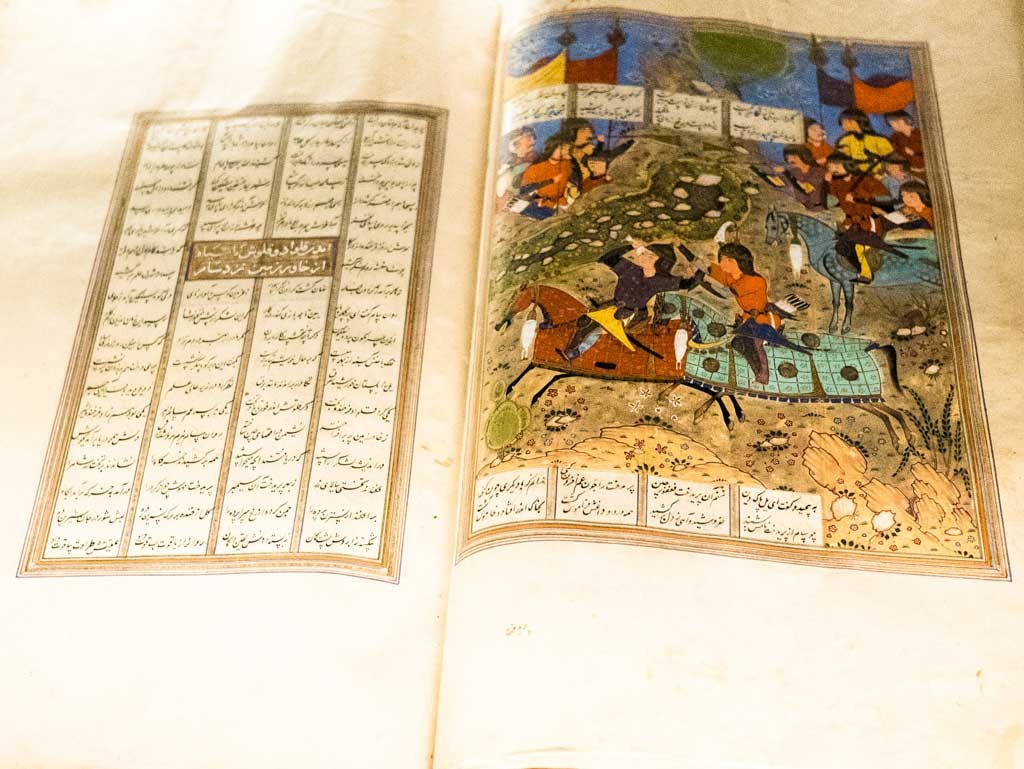
Hackathon day 1
| 10:00 | Hackathon spin off: Hacking / coding / designing |
Dates:
• 7 November: MeetTheHackers @ FOSSCOM
• 16 December: Registration Deadline
• 9 January: Pre-Hackathon event
• 11 January: Final Concept Notes
• 14 January: Selection of final participants
• 22, 23 and 24 January 2016: HackTheBook
24 January 2016
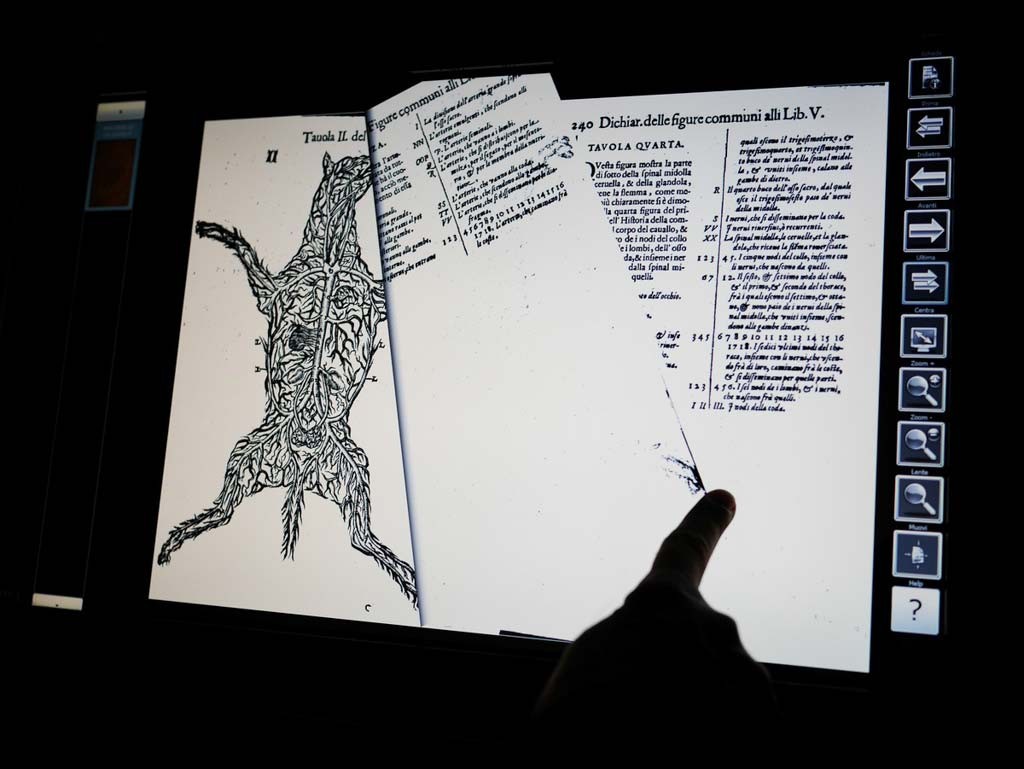
Hackathon day 2
| 10:00 | Hacking / coding / designing continues |
| 18:00 | Final pitches & judging |
| 19:30 | Award ceremony |
Hack the Book Party will follow!
The Jury

Antonella Fresa
E-Space Technical Coordinator. ICT Expert, experienced project manager of international cooperation R&D projects. Director at Promoter SRL.

Simon Cronshaw
Managing Partner & Co-Founder at REMIX Summits, specialising in entrepreneurial strategies, E-commerce, Consumer insight, Start-up operations…
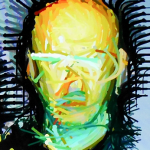
Gary Hall
Media theorist working at the intersection of philosophy, art and politics. Professor Director of the Centre for Disruptive Media, at Coventry University, UK.
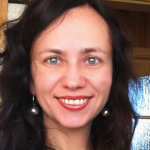
Joanna Zylinska
Professor of New Media and Communications and Goldsmiths, University of London.
Writer, editor, artist and curator.
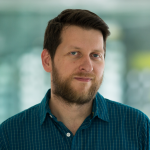
Theodoros Chiotis
Project Manager at the Cavafy Archive/Onassis Foundation, a poet and literary theorist. His works appeared in publications in various countries.
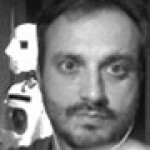
Prodromos Tsiavos
IPR expert. Advisor on legal issues of open data, open content management, FOSS, open hardware, open innovation / fabrication, open data regulation.

Thanasis Deligiannis
Political scientist, coordinator of the Open Technologies Group and member of the e-Government Group at the Greek Free & Open Source Software Society.
Registration
Registration closed, the event took place on 23-24 January 2016.
Newsletter
Join the Europeana Space Project’s Newsletter
Contacts
Onassis Cultural Centre 107-109 Syngrou Avenue 117 45 Athens
+30 210 900 5 800, info@sgt.grCommunity
![]()
Co-funded by The European Union
Powered by Promoter SRL. All the photographs in the website are courtesy of Goldsmiths.
Cover photo by: Sharon Drummond, Davies Deconstructed, 2012. Licence: CC BY-NC-SA 2.0.
